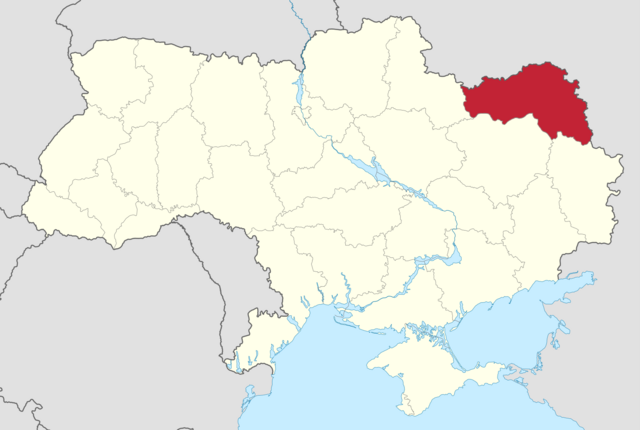Russia's Belgorod border region has declared a state of emergency following a significant and unexpected Ukrainian incursion that has put the Kremlin on high alert. The Ukrainian forces' cross-border assault, now in its second week, has dramatically intensified, with Kyiv claiming to have captured over 1,000 square kilometers of Russian territory and taken more than 100 Russian soldiers as prisoners.
The declaration of a regional emergency in Belgorod came as the situation on the ground deteriorated rapidly. Belgorod Governor Vyacheslav Gladkov described the conditions as "extremely difficult and tense," noting that Ukrainian shelling had destroyed homes and caused civilian casualties. The region, which lies close to the Ukrainian border, has been one of the hardest hit by Ukraine's surprising advance, which began on August 6.
"The situation in the Belgorod region continues to be extremely difficult and tense," Gladkov said in a video message posted on his Telegram account. The governor's statement underscores the severity of the crisis that has gripped the region, as Ukrainian forces push deeper into Russian territory, marking the most significant foreign military operation on Russian soil since World War II.
The Ukrainian advance has not only destabilized Belgorod but also spread fear and uncertainty throughout Russia's southern regions. The incursion, which Kyiv initially did not confirm, has now forced the evacuation of tens of thousands of Russian civilians. Many have fled their homes in Belgorod and neighboring Kursk, where the Ukrainian forces have made substantial gains.
In response to the escalating threat, Russia's National Guard has tightened security around critical infrastructure, including the Kursk nuclear power plant, located just 35 kilometers from the conflict zone. The International Atomic Energy Agency (IAEA) has expressed concern over the proximity of military activities to the nuclear facility, warning of the potential for a nuclear disaster if the situation continues to escalate.
Russian President Vladimir Putin has acknowledged the seriousness of the situation, describing the Ukrainian incursion as a significant provocation. He vowed to "kick the enemy out" of Russian territory, though his forces have struggled to repel the Ukrainian advance. The incursion has posed a significant challenge to Moscow, forcing the Kremlin to reconsider its military strategy and divert resources from the ongoing conflict in Ukraine.
The declaration of an emergency in Belgorod is a clear indication of how deeply the Ukrainian operation has shaken Russia. The region has been under heavy shelling, and the situation remains volatile. Belgorod's governor noted that children are being moved to safety, with around 5,000 relocated to camps in more secure areas. The governor also stated that approximately 11,000 people had fled their homes, with about 1,000 staying in temporary accommodation centers.
Ukraine's bold move into Russian territory has altered the narrative of the war, which had seen Russia advancing steadily after Ukraine's 2023 counteroffensive failed to achieve significant gains. Kyiv's forces have now brought the war to Russia, forcing the Kremlin to confront the reality of conflict on its own soil for the first time in decades.
The Ukrainian military's operation in Belgorod and Kursk has also created a strategic dilemma for Moscow. Russian forces, currently focused on achieving breakthroughs in Ukraine's Donetsk region, may now be compelled to divert troops to defend the homeland, potentially weakening their offensive capabilities on the Ukrainian front. The Institute for the Study of War, a Washington-based think tank, noted that this incursion could strain Russian military resources, although it may not fundamentally alter the overall course of the war.
For Ukraine, the incursion into Belgorod is not without risks. By committing significant resources to this operation, Kyiv may leave other parts of its frontlines exposed. However, the psychological and symbolic impact of the incursion is undeniable. Ukrainian President Volodymyr Zelenskyy has framed the operation as a demonstration of Ukraine's resilience and military capability, aiming to lift the nation's morale after more than 900 days of conflict.
Internationally, the Ukrainian incursion has drawn mixed reactions. U.S. President Joe Biden acknowledged that the situation in Belgorod was creating a "real dilemma" for Putin but refrained from commenting further, citing the ongoing nature of the operation. The White House has maintained that the U.S. had no involvement in planning the incursion, although Russian officials have suggested that Ukraine's Western backers must have been aware of the attack.




